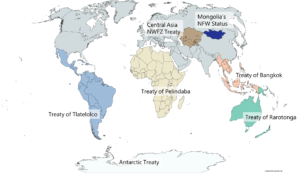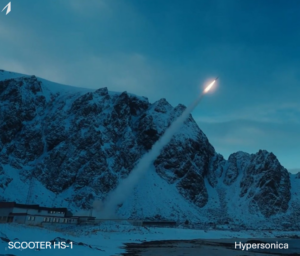Asia regional outreach seminar on HCoC in Almaty
2 March 2017
On 2 March 2017, the FRS organised a regional outreach seminar in Almaty (Kazakhstan) directed towards non-subscribing states in the region.
AGENDA
WELCOMING REMARKS
- Alexandre HOUNDAYER, Secretary General, Foundation for Strategic Research
- Amb. Traian HRISTEA, Head of Delegation, Delegation of the European Union to Kazakhstan
KEYNOTE SPEECH
- Amb. Kairat SARYBAY, Permanent Representative of Kazakhstan to the United Nations (Vienna)
I/ THE HCoC AGAINST THE PROLIFERATION OF BALLISTIC MISSILES: CONFIDENCE BUILDING MEASURE & PART OF THE NON-PROLIFERATION REGIME
- Bruno HANSES, Senior Expert, European External Action Service
- Dr. Robert GERSCHNER, Head of Nuclear Weapons, IAEA, CTBTO Prep Com and NPT, Federal Ministry for Europe, Integration and Foreign Affairs, Austria
- Lyailya TLEPBERGENOVA, Advisor to the National Space Committee Chairman of Kazakhstan
- Emmanuelle MAITRE, Research Fellow, Foundation for Strategic Research
KEY ISSUES:
- Presentation of the Code: its main provisions
- The concrete meaning of implementing the HCoC
- The HCoC in Asia: positions and evolution
- Relevance of joining the HCoC in relation to Asian non-proliferation policies
- Successes and challenges of the HCoC in today’s environment
II/ CURRENT TRENDS CONCERNING BALLISTIC MISSILES TECHNOLOGIES AND WMD PROLIFERATION: GENERAL & REGIONAL VIEWS
- Ass. Prof. Hua HAN, Director for Arms Control and Disarmament, Peking University
- Dr. Petr TOPYCHKANOV, Research Fellow, Carnegie Moscow Center
- Dr. Seung Min LEE, Ballistic Missile Specialist, Defense Ministry, Republic of Korea
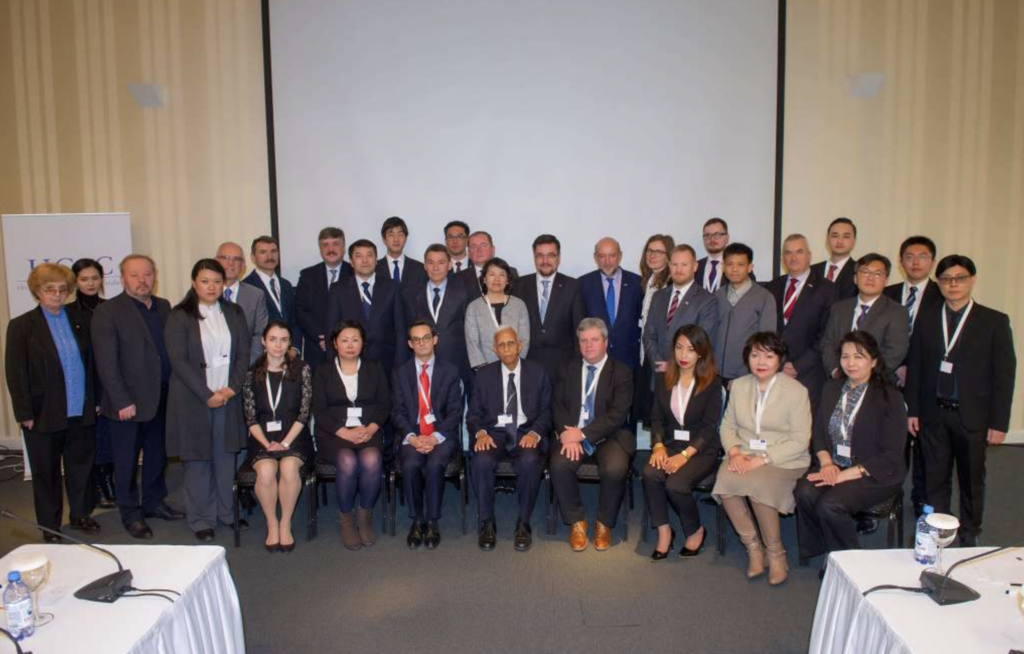
III/ CURRENT TRENDS CONCERNING SPACE LAUNCH TECHNOLOGIES & CAPABILITIES: DYNAMICS OF SPACE LAUNCH AND FUTURE USES OF SPACE APPLICATIONS
- Dr. Xavier PASCO, Director, FRS
- Rajaram NAGAPPA, Professor and Dean, National Institute of Advanced Studies, Bengaluru
- Karlygash AKHMETOVA, Senior Expert the National Space Committee of Kazakhstan
KEY ISSUES:
- Space development in Asia
- The characteristics of the development of space launch technologies
- The evolution of the satellite industry and its impact on the space launch sector
CONCLUDING REMARKS
- Dr. Xavier PASCO, Director, FRS
- Amb. Traian HRISTEA, Head of Delegation, Delegation of the EU to Kazakhstan
- Nurken URMANTAYEV, Counsellor of Multilateral Cooperation Department of the Ministry of Foreign Affairs of Kazakhstan
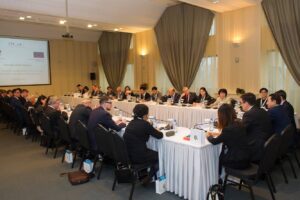
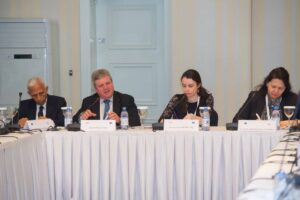
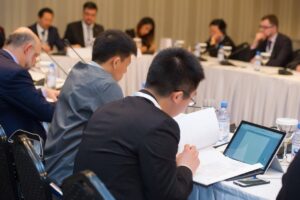
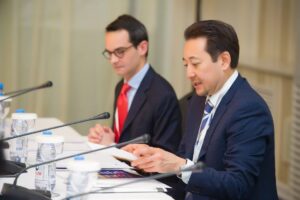
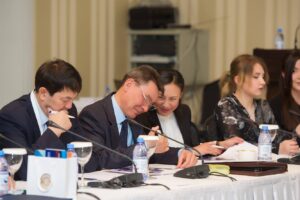
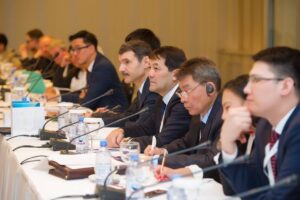
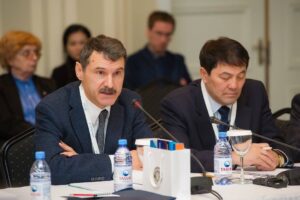
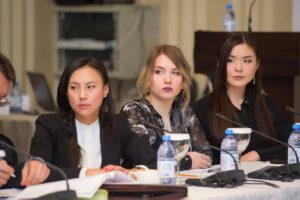
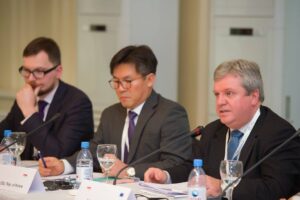
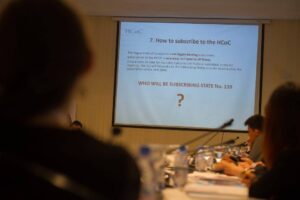
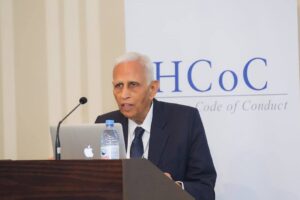
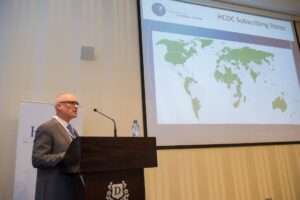
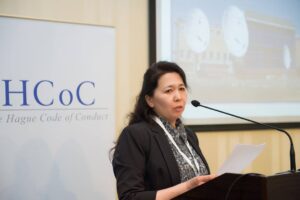
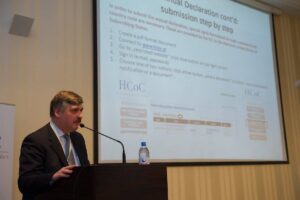
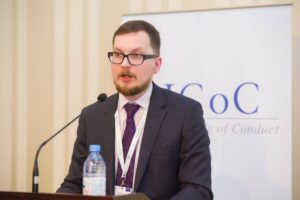
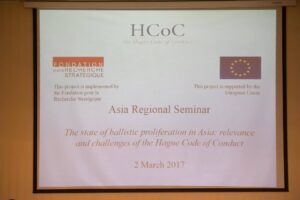
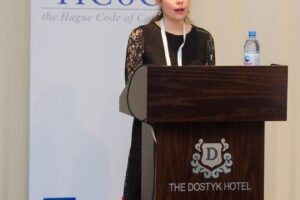
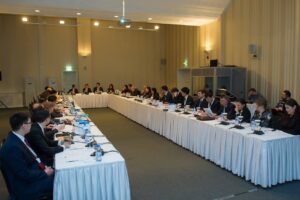
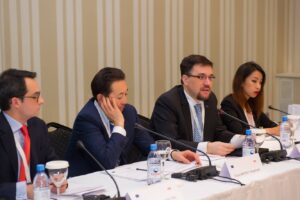
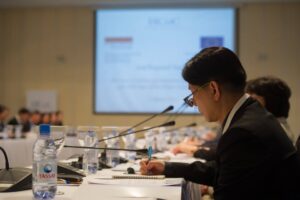
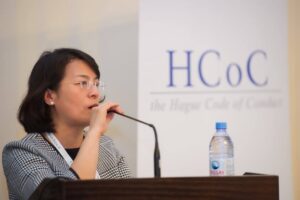
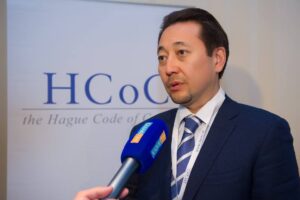
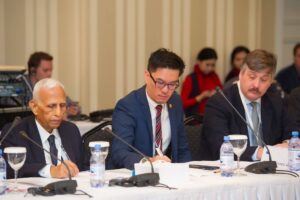
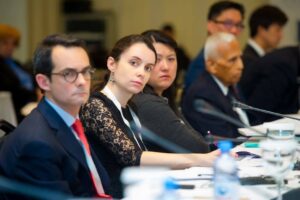
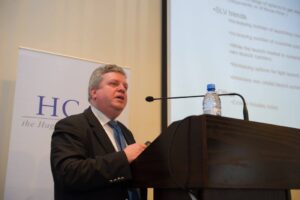
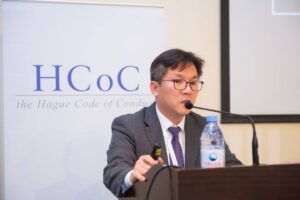
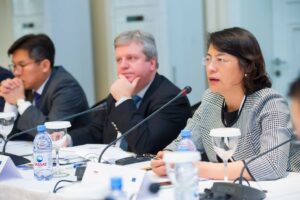
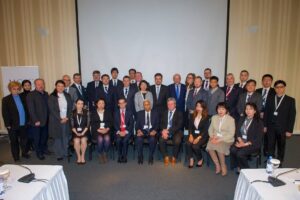
The seminar was mentioned on Kazakhstani national television:
